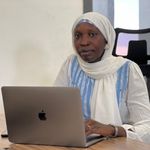

In this interview, Moustapha Diouf, president of the Association of Young Returnees of Thiaroye-sur-Mer (AJRAP), draws on his personal experience and civic engagement to highlight the risks of irregular migration and propose practical solutions. Through raising awareness, providing training and fostering cooperation between the State and Europe, he advocates for the efficient use of Senegal’s resources to create opportunities that offer young people prospects for the future within their own country.
How has your personal experience of irregular migration shaped your approach as president of AJRAP?
My name is Moustapha Diouf and I am the president of the Association of Young Returnees of Thiaroye-sur-Mer (AJRAP). I have first-hand experience of irregular migration. In 2006, I travelled on a wooden canoe to the Canary Islands, where I stayed for 45 days before being repatriated by the Senegalese government. AJRAP was founded in 2007 and legally recognised by the government that same year. Initially, around 600 people followed my example, but today my commitment extends along the entire Senegalese coastline, where I work to denounce and prevent illegal migration. Many young people from the community initially came to see me, asking why, given my background and knowledge of irregular migration and its dangers, I had not remained inactive. My answer was simple: action had to be taken. Encouraged by the youth, I began awareness campaigns on beaches, in markets, schools and other public spaces. We have run campaigns in all 14 regions of Senegal to inform young people about the risks. Every year, I visit schools in my area to speak about migration, raise awareness and explain the realities of the journey, showing that the promises of “pay and you’ll get there” are false.
Given Africa’s significant demographic potential, what joint strategies between States and associations could help to retain young people and develop local economic sectors based on natural and maritime resources?
Although NGOs have provided training, there is often little follow-up after these courses. Unfortunately, many young people continue to risk their lives, with farmers, herders, and fishermen being particularly vulnerable. Recent figures remain alarming: the number of departures in recent years is still catastrophic. Our association hosts delegations from Italy, France, Germany and other countries, and I have personally travelled to the most remote areas to speak about migration. Yet our resources remain limited. As everyone knows, if a child is to have a future here, it requires a concrete plan, not empty words. Recently, Spain introduced circular visas – but who truly benefits? Too often, it is politicians and their entourages, while those who should benefit most are left on the sidelines. The State must take responsibility. Fortunately, today we have a strong youth population, as well as abundant resources: gas, oil, the sea and fertile land. The State must harness these assets to create tangible opportunities for young people. While Europe faces an ageing population, Africa holds immense untapped potential simply waiting to be developed.
What specific actions does AJRAP take in the field?
In my opinion, some organisations working on migration are simply “money and project collectors.” They do not act in the interests of young people or the wider population, and they often encourage youth to leave, sometimes to distant countries. For many, the sea remains a veritable graveyard for young Africans. At AJRAP, we take a different approach. We organise conferences, wrestling galas, tea debates and door-to-door campaigns to reach a broad audience. In 2006, in Thiaroye-sur-Mer, we mourned the loss of 343 young people aged 25 to 26: these were husbands, fathers and sons who will always be remembered. To combat irregular migration effectively, the State must unite all local associations working on this issue and develop collective solutions. I am convinced that engaging local communities is essential if we are to see a real decline in departures. I call on the Senegalese State, the European Union, volunteers and all actors involved in migration to collaborate with us. We must also promote vocational training in sectors such as agriculture, livestock farming and fishing, enabling young people to earn a living locally. The future of the world is being shaped here in Africa; our soil is fertile, and our natural resources are abundant. It is time to implement concrete projects that provide real alternatives to migration and allow young people to thrive.
Recently Published
Subscribe to our newsletter!
Quick Links


